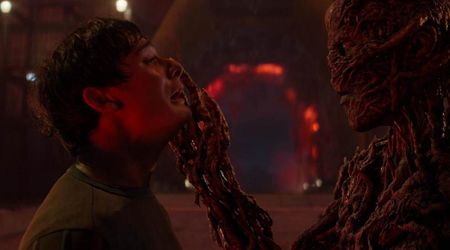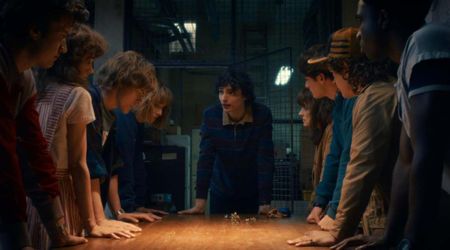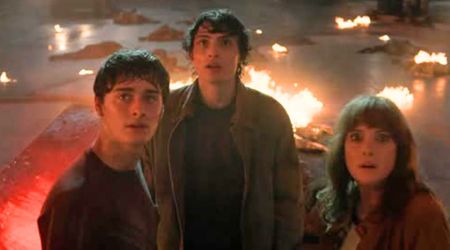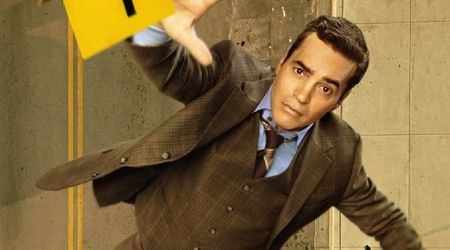'Penny Dreadful: City of Angels' Episode 4: Josephina turning to religion after assault has scientific basis

This was an episode punctuated by violence. From a dangling tortured traitor who is shot, to a particularly gruesome vengeance killing of a cop by Mateo (Johnathan Nieves) to the frightening apparition of a girl's mutilated torso that Frank Branson (Santino Barnard) conjures up to scare Tom Craft (Julian Hilliard) -- there were quite a few lurid, gory scenes in Episode 4.
In all this mayhem, Josephina's (Jessica Garza) sexual assault by a racist cop still makes an impact. Like a lot of sexual violence against women around the concept of honor, it is a byproduct of men settling scores. It also leaves an impact because of its sudden sheer brutality. One moment, Mateo and Josephina are walking home with groceries. The next moment they are being roughed up and searched for weapons. The cop searching Josephina molests her and then violates her with his fingers while the other two cops make Mateo witness this assault as he struggles helplessly.
It is a difficult scene to watch and must have been a hard one to act out but it shows how the feeling of being powerless pushes these two members of the Vega family in very different directions. When they return home, Josephina has just about suppressed her tears and Mateo is seething. When Maria Vega (Adriana Barraza) spots his bloody hand, she goes to look at it and sees the 'pachuco' tattoo. Tiago Vega (Daniel Zovatto) immediately loses it because he has just come from the station where they are hauling in pachucos in large numbers as suspects for the Hazlett murder case.
Mateo, already angry at Tiago for being a cop, storms off saying he is tired of feeling weak. As the family argues, Josephina stands mutely in the background. When Josephina tries to talk to Maria about what has just happened to her, she is told, "Not now." Later, she wanders the street trying to process what has happened to her. That is when she sees a poster for one of Sister Molly's gatherings. On it are inscribed the words "Raise your voice! Let the Lord hear you!"
It is like a lightning bolt to her because more than anything, at that moment, she wants to be heard. She is feeling not only powerless like Mateo but also has not had the cathartic moment of talking about what has happened. Mateo, in contrast, does speak with his pachuco friends and formulates a plan to take back power.
Josephina, on the other hand, appeals to a "higher power" to strike down "the Beast" in the guise of the man who assaulted her. Sister Molly's theatrics speak to Josephina's vulnerability as a woman and a Latina in a city hostile to both identities. She wants to be "saved" from the evils she encounters.
For viewers, her sudden turn to evangelical Christianity that is not connected to her culture can seem surprising. But her reaction to turn to religion, specifically Christianity, after the sexual assault does have a scientific basis. According to a Pew Research Center, women are generally more religious than men. An estimated 97 million more women than men claim a religious affiliation worldwide. In the United States, specifically, women are more likely than men to say religion is “very important” in their lives (60% vs. 47%).
This is especially true for Christianity, which presents itself as a religion of the powerless with lines like: “Blessed are the meek, for they shall inherit the earth.” One of the reasons put forward for this skew is the lack of “existential security” felt by many women because they generally are more afflicted by various kinds of trauma like violence, poverty, illness, and other difficult circumstances. Those women with greater control over their environment, specifically women who have joined the workforce, tend to show lower levels of religious commitment than women who do not work outside the home for pay.
So Josephina reaching out to a supernatural higher authority for protection when she is feeling the most vulnerable and helpless is rooted in human behavior of turning to God or religion as a band-aid to trauma when there is no recourse to justice in the human world.
The series airs Sundays at 10 p.m. ET/PT on Showtime.










